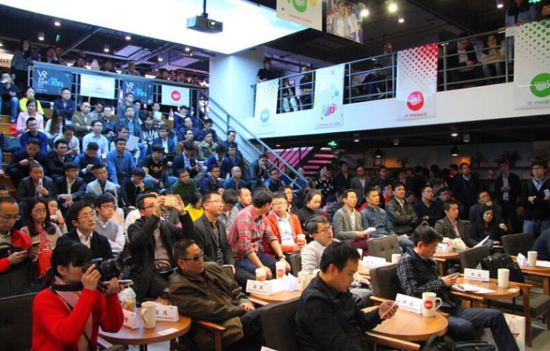
Facebook acquired virtual reality technology company Oculus VR for $2 billion in 2014. Facebook CEO Mark Zuckerberg has said that he plans to expand Oculus into games outside of the game. He believes that virtual reality will become a move beyond smartphones and tablets. After the device. At this year's 5th Global Mobile Games Conference (GMGC2016), VR has gradually become a new industry focus, and the mobile game boom is beginning to fade, for the VR that is so popular and widely viewed by the industry, but for most people For VR, it is still unfamiliar.
When is virtual reality?
Virtual Reality (VR) is a new high-tech that has emerged in recent years. It is also called Spiritual Technology or Artificial Environment. Virtual reality is the use of computer simulation to create a virtual world in a three-dimensional space. It provides users with simulations of the senses of sight, hearing, and touch. It allows users to observe things in the three-dimensional space in a timely and unrestricted manner. .
What is augmented reality?
Augmented Reality (AR) is also known as mixed reality. It uses computer technology to apply virtual information to the real world. The real environment and virtual objects are superimposed on the same screen or space at the same time.
The difference between VR and AR
In simple terms, Virtual Reality (VR), the scenes and characters you see are all fake, and it's about putting your consciousness into a virtual world. Augmented Reality (AR), where some of the scenes and characters that are seen are true or false, brings virtual information into the real world.
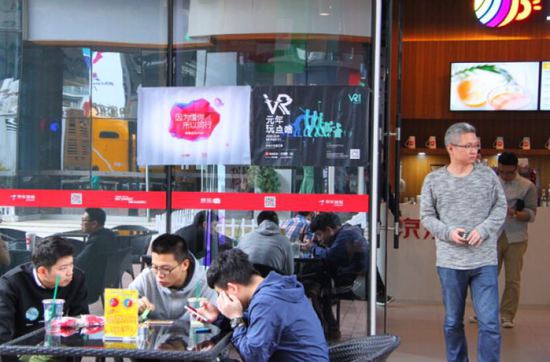
After a basic introduction to the above, I have a basic understanding of virtual reality. This picture was taken during this MWC 2016 period. My friend circle was smashed by this picture. This is Samsung's decision to use VR technology to broadcast live broadcasts in order to reflect the power of her own Gear VR. So, then put a VR device in every reporter's seat. Facebook CEO Mark Zuckerberg announced the virtual reality of the talks at Samsung and announced that the future of virtual reality will be "the most social platform." After Facebook acquired Oculus, it had hoped that virtual reality would be regarded as a "social platform." Based on this technology and equipment, not only can they play games and movies, they can even communicate with each other. Facebook has now formed a team dedicated to creating social interactions in virtual reality scenarios.
2016 is considered as the VR start year
According to Yang Jianyong, the founder of sensor Internet of Things, VR has clearly become one of the hottest topics in the tech industry, especially this year it is called by the industry the first year of VR. After CES, MWC, and GDC, VR started to burst into content with the Oculus Rift, HTC Vive, Samsung Gear VR, and Sony PS VR. According to a report released last year by research company Juniper Research, virtual reality technology has only attracted the enthusiasm of tech enthusiasts, but the technology will gradually enter the mainstream consumer market in 2016, and the price of virtual reality helmets will be in 2016. Will further decline, its application space will also expand from the game market to other areas. At the beginning of this year, another report predicted that the market size of the VR industry in the future is expected to exceed the trillion-dollar mark in 10-15 years. It also indicates that VR applications and industrialization will usher in greater development. Well, VR games will What gesture did you make? As the next outbreak, can VR subvert our imagination? With many questions, I walked into the VR event of the Third Season Salon hosted by NetEase's Business Club and VR Evolution Forum on March 25.
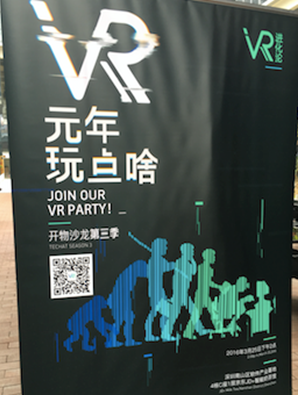
Ms. Yang Xiaqing, deputy director of the Netease Technology Center, said that VR’s event, NetEase’s selection in Shenzhen, is based on Shenzhen’s very strong hardware industry chain. Attention to VR will be very important this year. VR/AR must first build a complete ecosystem from the upstream to the downstream. Rich VR content and other applications will attract consumers. Today, at the NetEase VR event, from the left and right vision CEO Yang Aofei talked about the content of the VR game, invited the Tigers empire Chen Hu of the hacking empire to join, and shot the world’s first VR Kung Fu movie “Tiger Tigerâ€, which is also a real VR. The technology is used in the film and television art cross-border movie. According to Yang Aofei, this film will be held in the Silicon Valley Entrepreneurship Festival in the United States, hoping to shake the Americans by then.
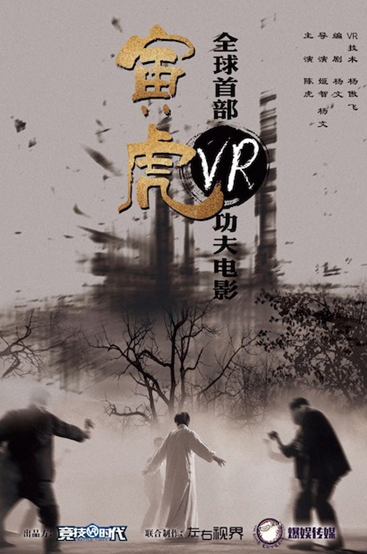
When talking about why VR was the first choice for making kung fu movies, Yang Aofei said that Kung Fu films can embody our Chinese culture as a big production of China's internationalization, integrating elements of Hollywood and Silicon Valley, and at the same time embodying the depth of the VR+ pan-entertainment strategy in the competitive era and opening up the industry. Chain, so far, the ecological circle created by VR+Pan Entertainment has become more and more clear. I'm still looking forward to this VR Kung Fu movie!
How to build a complete VR industry chain?
Li Bin, chief strategy officer of Aofei Entertainment, said in his speech that Olympiad, as a company in the entertainment industry, will cast a brand new pan-entertainment empire that looks at the whole country and even the world. The original intention of entering the VR field stems from the actual demand for Olympic content. The content produced, how can we present these better in front of the audience? Whether the traditional movie and TV drama can really completely present the content in our comics, the answer is not necessarily. How do we achieve the desired effect? Later, Aofei began to pursue virtual shooting. The entire virtual reality can express our content. Based on this reason, we carried out the entire layout. Aofei’s consistent strength lies in its content. It has also invested in many top VR companies at home and abroad, covering virtual reality head-mounted devices, input technologies and equipment, IP and content, and initially forming a complete VR ecosystem. In the industry layout, Ao Fei came to a conclusion that VR is a real thing for the entertainment and film industry. Whether it is a movie or a TV show, the production method must be different from the past to establish a very efficient state, and this depends on the technical environment that is now called VR service. Aofei Entertainment has done a lot of preparatory work. In virtual shooting, virtual people rely on several solutions to solve this problem. At the same time, it also solves the offline store's preparation. It also needs content and an important terminal for effective performance. Output, combined with all these elements, brings the whole world to the entertainment of reality. Pursuit of content, virtual images, technical pursuit of a brand-new process, new ideas for shooting, all companies that contribute to the realization of these ideas, or teams, have joined the entire eco-chain of Olympia as soon as possible. When to go. In the core concept of this piece, OAF establishes a China-based IP development ecological alliance in the true sense, integrates through the resources of O&F's IP, integrates with a new technology development process, and brings all O&M IP strengths. The integration of the power of film and television production in the true sense of the word creates an IP that truly belongs to the Chinese characteristics of the big world relations, and takes these contents with Chinese cultural characteristics in the most perfect technical form to the world and the world. Comparing first-rate cultural content, IP plus technology can create competitiveness.
How does Orion revolutionize the way VR games interact?
Chen Jiajing, general manager of LeapMotion China, was present at the VR Forum. He showed many fundamental changes in the human-machine interaction between the past and the present. For example, the previous TV and the current TV have only changed from the previous button to the current remote controller. The computer used to be a mouse and keyboard. Now it is still just a wireless mouse. He pointed out that the company has been studying the interaction between people and machines for eight years since the company was founded, and the interaction between people and technology, although television has become more and more. It looks good, the computer is getting better and better, and the interaction between people and these machines has not found a fundamental change. Then the first generation of VR is the remote control. How does VR interact with it next? Do you wear a handkerchief? Leap Motion is bringing your hands into the virtual world. Chen Jiajing made a demonstration on the spot. In the virtual world, he can do something that cannot be done in real life. The controller and the virtual reality headset are combined together. The world has seen its own hands, clearly marked with our hand bone structure, which can then be arbitrarily moved and stretched. Our hands follow the movements in front of us, present each movement very precisely, and present virtual reality in front of us. Like the real world, let us step into a new world.
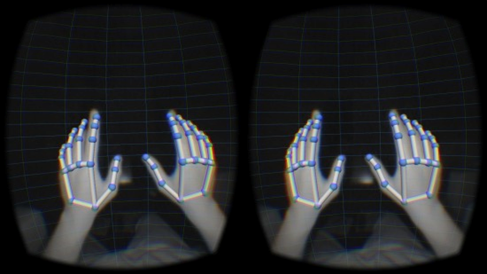
LeapMotion wants to eliminate obstacles between people and technology. Using your hands, you can use virtual reality and augmented reality to track the movements of your hands and fingers and turn them into 3D inputs. When talking about VR high-end gaming products, Chen Jiajing said that Japan's Sword Art Online stands on a treadmill, wears a virtual reality device, and fights with monsters. This is for very high-end players. According to Yang Jianyong, the founder of the sensor Internet of Things, VR version of Sword Art Online was provided by IBM. IBM recently released its game VR version, which provides a live experience in Japan. From the Japanese media reports, it is Quite sci-fi.
VR is the tuyere. Who will be the pig on the tuyere?
Before joining NetEase's VR Salon in Shenzhen, I also discussed with Yang Hongwei, Managing Director of Fangyi Venture Capital. Yang Hongwei has more than 20 years of experience in business and investment in TMT, focusing on emerging fields such as big data, artificial intelligence, enterprise services, smart hardware, robotics, mobile internet, and overseas investment. He also has a long-term focus on the VR market. He pointed out that judging from previous big industry development cycles, the mature small cycles are low-level technology, hardware, basic tools and middleware software, lightweight applications, game entertainment, and heavy applications. In the VR field, it has been partially overheated from the early stage of investment. The current short-term market capacity and maturity are not enough to support the influx of so many enterprises. Therefore, in the next 1 to 2 years, there will be a large number of such companies unable to continue financing or switch to other things. He believes there are several possible future paths for success:
1) Hardware and underlying technology companies. There are already relatively well-known companies in the market, such as Le Xiang and Nuo Yiteng. They ran faster in the early stage and were sought after by capital. They also began to pay attention to building an ecosystem that surrounds the hardware or the underlying technology. This is the right path, but it can only be said that there is a certain possibility of success. After giants such as Sony, HTC, and Microsoft enter the market, there is basically no big opportunity for other start-ups in the VR hardware area (especially in the field of helmets), especially once the price of the likes of Xiaomi is on the market. . Moreover, domestic Internet companies have already invested heavily in advanced upstream technologies and low-level hardware-based enterprises abroad, and domestic similar companies lack sufficient moats. It may be that in the further future, based on the popularity of VR core hardware, there will be sporadic opportunities for accessories, VR integration with other technical fields, and certain vertical categories.
2) The owner of content IP (such as games, movies, animation, entertainment videos, education, etc.). This is a great opportunity for existing resource platforms. High-quality content is always scarce, so there is a little chance for start-up companies, but it is difficult to make entry-level. Unlike PCs and mobile phones, the final penetration rate of VR hardware may not be very high. When the number of terminals is insufficient, the possibility of survival in the early stages is relatively small. Therefore, it is very important for start-ups to maintain good cash flow.
3) The owner of the traffic. Such as BAT360, also includes storm music as grand and so on. This kind of company is always the biggest winner in the backhand. What is more frightening is that they have been at the forefront of the domestic and international layout. Therefore, it is expected that the VR market will continue its current pattern, and it is difficult to have a subversive force.
4) Resource-based and node-based enterprises in the vertical sector. In the case where the hardware penetration rate is not enough, the C-side wants to make money very quickly. So many start-ups are starting to flood into verticals. Such as real estate, tourism, medical care, education and training, do 2B, or 2B2C business. However, in each vertical area, there may be no more than two final winners. Therefore, the companies that start up here want to understand the logic that can win. In the early days, as soon as possible with the industry's largest resources, the formation of industry nodes is crucial.
5) Offline experience shop market. As a new thing, the VR experience shop will be popularized in the early market and will play a key role in accomplishing the public cultivation. Traditional shopping malls, movie theaters, video game halls, internet cafes, tourist attractions, 3D movie theaters, exhibition halls, education and training chain institutions, etc. all have the power to upgrade, hoping to bring new product forms to increase the number of people. For example, after G-wearables released StepVR, a platform for virtual reality entertainment devices, last year, it started to collaborate with resource parties with strong content and the ability to drop lines, which will promote the experience of the VR offline experience store market. Rapidly spread.
6) E-commerce and chain channels. The nature of business is sales, VR equipment landing, similar to previous PCs, mobile phones, all need a good product output channel, so the combination of e-commerce and offline chain channels will complete the final delivery. For example, as a product recommendation platform for smart hardware, 72V achieves the docking between intelligent hardware companies and C-end fan users, and at the same time, it is combined with various offline resources and channels to help VR products finally land.
After experiencing several overheating and declines in the small business cycle, Yang Hongwei believed that VR can still not clearly determine whether it can become a huge market that can replace the mobile Internet. Entrepreneurs working in this field should be fully sprinting while maintaining enough. The vigilance. Try to complete the product iteration and resource integration within a short time window.
Outdoor Sound System,Wall Mounted Speakers,Outdoor Wall Mounted Speakers,Outdoor Wall Mount Bluetooth Speakers
The ASI Audio Technology Co., Ltd , https://www.asi-sound.com